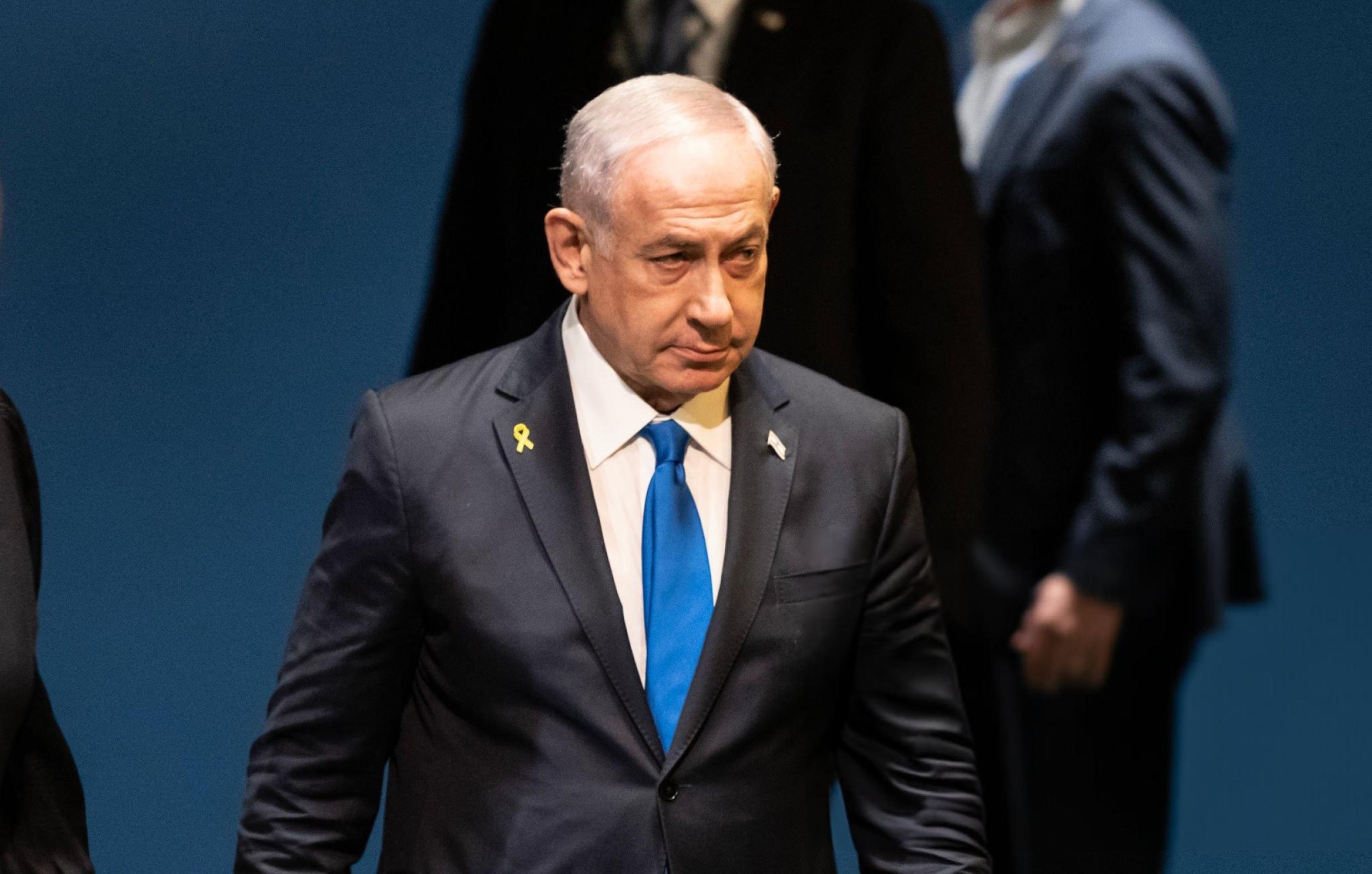Israeli Prime Minister Benjamin Netanyahu dismissed Defense Minister Yoav Gallant on Tuesday, sparking outrage across the nation as Israel confronts escalating conflicts on multiple fronts. Gallant’s surprise removal comes amid widening political tensions and growing public dissent over Netanyahu’s handling of the ongoing war in Gaza and Lebanon.
Netanyahu and Gallant had long disagreed over the military strategy in Gaza. Netanyahu has maintained a hardline stance, advocating sustained military action against Hamas, while Gallant, a former general, has called for a more balanced approach, suggesting that military efforts should facilitate a temporary diplomatic solution to secure the release of hostages held by Hamas. Netanyahu cited “significant gaps” and a “crisis of trust” as the reasons behind Gallant’s dismissal.
“In the midst of a war, more than ever, full trust is required between the prime minister and defense minister,” Netanyahu said in a statement. He added that the trust that once characterized their working relationship had “cracked” in recent months. Gallant’s more pragmatic approach reportedly clashed with Netanyahu’s hardline position, with Gallant even suggesting that Israel pursue negotiations, a stance that has gained some support among families of the hostages and anti-government protesters.
Gallant’s dismissal has ignited public backlash, with thousands of Israelis taking to the streets in Tel Aviv, Jerusalem, and several other cities. Protesters blocked central highways and rallied outside Netanyahu’s residence, waving Israeli flags, blowing whistles, and chanting slogans. Some demonstrators gathered around bonfires on blocked roads, expressing their frustration with what they see as Netanyahu’s focus on political survival at the cost of national security. The removal of Gallant mid-conflict, protesters argue, jeopardizes Israel’s stability and military effectiveness.
“Firing Gallant in the middle of a war is an act of madness,” opposition leader Yair Lapid posted on X. “Netanyahu is selling Israel’s security and the lives of our soldiers for political survival.” The grassroots forum representing hostage families echoed Lapid’s sentiment, calling Gallant’s removal a “direct continuation” of Netanyahu’s efforts to undermine an abductee deal. The forum urged Gallant’s replacement, Israel Katz, to prioritize an end to the conflict and secure a deal for the hostages.
Channel 12 reported that Gallant’s decision to send draft notices to ultra-Orthodox men, who are typically exempt from military service, was a factor in Netanyahu’s decision. Israel’s Supreme Court recently ordered the government to reconsider this exemption, a move that has polarized public opinion. Gallant’s outreach to ultra-Orthodox communities had intensified criticism from within Netanyahu’s coalition, which relies on ultra-Orthodox support. Gallant’s stance, however, underscored the need for broader national solidarity as Israel faces threats from Gaza and Lebanon.
Gallant’s dismissal also took place as U.S. attention focused on its presidential election, a timing that analysts have suggested Netanyahu may have found advantageous. While the White House declined to comment on the dismissal, it expressed continued support for Israel’s security and recognized Gallant as a valued partner on defense matters.
Gallant, known for his straightforward style and public popularity, issued a statement reiterating his commitment to Israel’s security. “The security of the state of Israel always was, and will always remain, my life’s mission,” he said. Gallant was expected to address the nation on television later in the evening.
Replacing Gallant, Israel Katz, the current foreign minister, will now lead the Defense Ministry. A longtime ally of Netanyahu, Katz has promised to pursue Israel’s “victory in the wars against its enemies.” Katz, who has limited military experience, has served as a key member of Netanyahu’s Security Cabinet. His promotion aligns with Netanyahu’s recent pattern of sidelining potential rivals, with the prime minister historically using strategic reshuffles to consolidate power.
Netanyahu’s decision has heightened divisions within Israel’s political and security establishment. Reports from Channel 13 claim that the disagreement between Netanyahu and Gallant had become public knowledge, even reaching Israel’s adversaries. Netanyahu remarked that “our enemies enjoyed it and derived a lot of benefit from it,” reflecting concerns that the leadership divide could weaken Israel’s position.
The decision to replace Gallant comes on the heels of an October 7, 2023, attack by Hamas, which marked a severe escalation in the conflict. What began as a unified response by Israeli leaders has now fractured, exposing rifts that protestors fear may endanger Israel’s future amid a perilous geopolitical climate.







